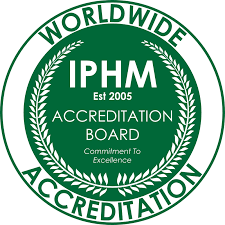
Neeley Moore, Compassionate Inquiry Therapist and Addiction Recovery Coach
“When you weren’t held as a child, you develop a mind to hold yourself with.” Gabor Maté
I work at the intersection of trauma, somatic and embodied healing. My approach is grounded, integrative, and client-led—built on the belief that true transformation happens when we reconnect with the intelligence of the body and the truth it holds.
I create a space where clients can be fully seen and heard, not just emotionally, but somatically and spiritually. This is not about bypassing pain or polishing over discomfort. It’s about dismantling the internal armoury, meeting what’s been buried, and reclaiming the parts of self that were lost to survival.
Through mindfulness-based somatic therapy, I help retrain the nervous system, build resilience, and restore coherence between mind and body. We work with anticipation, how the brain prepares for threat, and bring awareness to the ways past experiences still live in the body through sensation, posture, movement, and energy.
My work is informed by lived experience: childhood trauma, addiction, recovery, fertility grief, IVF, hormonal dysregulation, and menopause. These aren’t just chapters in my story, they’re the foundation of my practice. I understand what it means to rebuild from the inside out.
I trained as a Recovery Coach with CCAR and later as a Compassionate Inquiry Practitioner under Dr. Gabor Maté. I’m an associate member of the International Practitioners of Holistic Medicine. My approach integrates somatic awareness, emotional intimacy, and psychological insight. It’s not formulaic—it’s relational, intuitive, and rooted in presence.
Clients come to me to work through:
- Addiction & recovery
- ADHD & anxiety
- Depression & low self-worth
- Abuse, trauma & PTSD
- Fertility challenges & grief
- Women’s health & hormonal transitions
- Spiritual disconnection & identity loss
This is a body-mind integration therapy. It’s about inhabiting your life fully, living from your wild, safe heart with clarity, integrity, and freedom.
As Gabor Maté says, “When you weren’t held as a child, you develop a mind to hold yourself with.” My work is about helping you lay that mind down, and come home to the body that’s been waiting for you.
Accreditation and Memberships:

Compassionate Inquiry Practitioner London, Trauma therapist, stress, Midlife, All Addiction, Childhood adversity, Infertility
HARVEST THERAPY
20 Bedford Square,
London WC1B 3HH
United Kingdom
Phone Number:
020 8962 6247
email: info@harvest-therapy.co.uk

